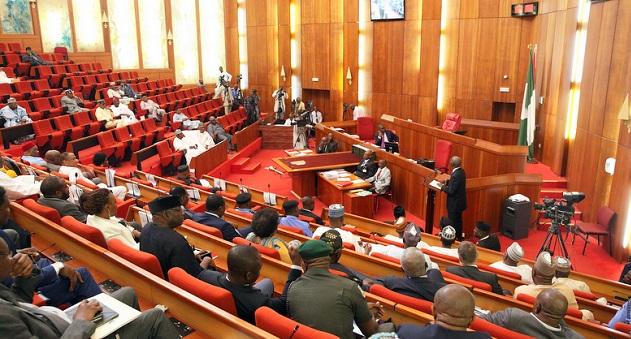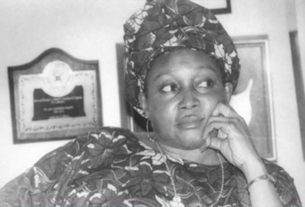By Umunna Kalu
The obnoxious reign of bread and butter politicians, those without principles and political parties without ideology is steadily taking the country by the storm.
Unarguably, today, the supposed voices of the opposition are decamping into the ruling parties, majorly, for pecuniary gain’s with the nation’s fragile democracy dovetailing into a One party State.
Our checks at insidenigeriang.com, for instance, shows that the Southeast that used to be a stronghold of the then ruling People’s Democratic Party (PDP) has been badly hit by the cross-carpeting bug that those who only “yesterday’ claimed to be die-hard Democrats have shown that they lack Democratic tenets.
Many have proved to be conditional Democrats, only when it serves their purpose rather than the majority good.
The list of those that have jumped ship in the Southeast for instance is mind-blowing.
Just a few names: Senators Ifeanyi Ubah, Stella Oduah, Uche Ekwunife. Also included are: Obinna Ogba, Obinna Nwachukwu, Lazarus Ogbee, Mark Makwe, Anthony Agbazuare, Eze Chikamnayo, Sam Nwogu among other numerous big names.
Today, almost àll the lawmakers at the Rivers State Assembly are canoe-jumping to the ruling APC.
In Enugu State, not less than six lawmakers in the state Assembly have embarked in their political nomadism from the LP to the PDP, the party in-çharge of the State.
What we are witnessing is politicians running into the political party of the government that is in power, either at the centre nationally or in the State. They will still run to another political parties if they are not getting the required attention in their current parties.
The Nigerian constitution frowns at party-hopping by lawmakers but loopholes in the law and other factors allow such to continue.
Records show that about 16 months to the end of the 9th House of Representatives, only six of the 21 members elected to the House on the platform of minor political parties in 2019 remained in those parties. The others defected to the ruling All Progressives Congress , despite the 1999 Constitution frowning at lawmakers switching parties at will.
Before the party switching began, members of minor parties had projected themselves as a force to be reckoned with in the House, particularly during the battle for the leadership of the minority caucus. While the Peoples Democratic Party, which is the largest minority party, nominated Kingsley Chinda (PDP, Rivers) as Minority Leader, members of the other minority parties joined forces with a rebel group in the PDP and supported Ndudi Elumelu (PDP, Delta) to clinch the position.
However, as of January 2022, the minor parties, almost entirely faded out in the House. Only six of the members remained as 13 decamped to the APC.
At the last count of their tenure, the Labour Party, Africa Democratic Party, Social Democratic Party and Action Alliance no longer had seats in the House because of defections.
Section 68 (1g) of the 1999 Constitution provides that, “a member of the Senate or the House of Representatives shall vacate his seat in the House of which he is a member …….. if being a person whose election to the House was sponsored by a political party, he becomes a member of another political party before the expiration of the period for which that House was elected: provided that his membership of the latter political party is not as a result of a division in the political party of which he was previously a member or of a merger of two or more political parties or faction by one of which he was previously a member.”
While the above provision prohibits political party prostitution in the legislature, it also contains a lacuna that defectors are latching on to decamp.
Lawmakers often cite “division” in their parties for jumping ship.
In the 9th House, for instance, the minority leaders were hampered from even protesting defections. In February 2021, when Peter Makinde defected from ADC to the APC, Nicholas Ossai, a member of the PDP, raised a point of order, citing Section 68 of the constitution. He said Hon Makinde did not provide proof of a division in the ADC.
But in his ruling, Femi Gbajabiamila dismissed Ossai as a “meddlesome interloper,” noting that since he is not a member of the ADC, he would not know if there was division in the party.
Again in March 2021, Hon Gbajabimila reiterated the same argument following the defection of Jimoh Aremu of the ADC to APC. He once again called the deputy minority leader, Toby Okechukwu, a meddlesome interloper.
“Are you a member of the ADC? If the answer is no, then you are a meddlesome interloper. You are not a member of that party, so you will not know what is going on in that party,” Gbajabiamila told Hon Okechukwu.
Gbajabiamila often used the argument against the then Minority Leader, Mr Elumelu, to bar him from speaking for small parties when such incidences occur. But the standing rule of the House mandates the Minority Leader to speak on behalf of minority parties.
The term “division in the party’ is nebulous and can be exploited by desperate politicians.
Investigation by this media shows that small parties are more of stepping stones
However, the minor parties can be said to be reaping what they sowed. A common trend among members who won elections into the House on the platforms of those parties is that they moved there shortly before the 2019 general elections, often because they could not get the tickets of the major parties.
Consider the case of Blessing Onuh, a daughter of former Senate President David Mark, who was elected on the platform of APGA, a relatively unknown party in her state, Benue State then. She had contested in the PDP primaries but was defeated by her uncle, Egli Ahubi.
Two weeks after the primary, she joined APGA and was handed the House of Representatives ticket. She proceeded to inflict on her uncle a resounding defeat at the general election. She later decamped to the APC.
Another example was in the case of the two Action Alliance members of the House. In the run-up to the general election, Imo State APC had imploded over the efforts of former Governor Rochas Okorocha for his son-law, Henry Nwosu, to succeed him as governor. After Nwosu was denied the APC ticket, he decamped to AA with some followers, where Pascal Obi and Uju Kingsley were elected to the House. In the aftermath of the Supreme Court nullification of the election of Emeke Ihedioha as governor of the state, nine members of the AA in the state House of Assembly decamped to the APC and Messrs Obi and Mr Kingsley followed suit at the federal parliament. Hence, AA as a political party could be said to have been a vessel for political alignment in Imo State.
The story is similar to APM in Ogun State, where former Governor Ibikunle Amosun’s anointed candidate, Adekunle Akinlade, defected to APM after he failed to clinch the APC governorship ticket. Mr Akinlade was defeated at the poll. However, APM got a seat in the House through Kolawole Lawal of Yewa South/Ipokia Federal Constituency of Ogun State. Mr Lawal had served under Mr Amosun as Commissioner for Forestry. In 2020, he returned to the APC, alongside seven APM members of the Ogun State House of Assembly.
Some have blamed registration requirements for the trend.
Section 225A of the 1999 Constitution mandates INEC to deregister political parties that fail to register impact at the elections by winning a minimum number of seats.
“The commission has the power to deregister political parties on the breach of any of the requirements for the registration of a political party, failure to win at least 25 per cent of votes cast in one state of the federation, in a presidential election, or 25 per cent of votes in one local government area in a governorship election and failure to win at least one ward in a chairmanship election, one seat in the National or State Assembly election or one seat in a councillorship election.”
In line with that provision, INEC, after the 2019 general elections, deregistered 75 political parties. The fear of the axe of deregistration falling on them thus also encourages political parties to offer their tickets to defectors from the major parties that they think can win elections.
Jubrin Ibrahim, a Professor of Political Science, said inequality in resources between the two major parties (APC and PDP) and the others is behind the failure of the small parties to meet the basic requirements for staying afloat.
However, he also noted that some of the small parties are set up by “political entrepreneurs” to attract wealthy politicians.
According to him “We have a political system where two parties are the major parties that have all the resources in the political space, while the rest are at the bottom of the heap, struggling for survival.
Those struggling for survival are ready to welcome anybody if you can give them some resources because they don’t have any. Some of them are set up by political entrepreneurs, hoping they can attract rich people to their parties, and get some of the money off them. So that is the reality for the political party system we run and I think it is very difficult to change at this point.” .
Bidi Farouq, a lecturer of political science, at the University of Abuja, agreed with Mr Jibrin. He said most of the so-called small parties are “merchant platforms” that are ready to sell to the highest bidders, both to meet INEC’s basic qualifications and enrich themselves.
“They don’t have standard. They sell candidacy like merchants to anyone willing to pay. At the end of the day, they are merchants, not political parties. They are briefcase parties, available to anybody to purchase,” he said.
Julius Abure, embattled chairman of L P, had at a forum absolved the parties of blame. He said parties have to accept candidates that are available to them.
Rather than blaming the political parties, he said, the laws that allow elected people to defect should be reviewed.
“If you have no aspirant for a particular office, and somebody comes from another party and he says he wants to run—and you see the capacity to win the election, it is obvious that you will give the ticket to the person. The main challenge is that law that created the loophole. If the laws are made to protect multiparty democracy, it will be difficult for those persons to decamp like that. I will therefore not put the blame on the political parties. Rather, those defectors and the laws that created the loopholes in the first place,” Abure submitted.
Unlike in many countries, most of the parties in Nigeria have no distinctive ideological identities. In pre-independence Nigeria and the First Republic, the three main parties, the Action Group, the Northern Peoples Congress (NPC) and the National Congress for Nigerian Citizens (NCNC) had ethnic or regional leaning.
Farouq said the dearth of ideology could be traced to the policy of the Ibrahim Babangida military regime that abolished the ideological division of “left and right” or communism, socialism and capitalism for the formation of political parties. Such according to him explains the lack of difference in the parties.
Humphrey Nwodo, a public commentator, explained that the lack of ideology that characterized politics in the country was the driving force behind the gale of defections.
He told our reporter that politician with ideology could make positive impacts in the polity without ” necessarily running into the government that is in power at the centre nationally or in the state.” adding that they will still run to another party if they do not get what they want.
“” This is why, we don’t have credible opposition in our system. We have a lot of fair-weather politicians in the system; otherwise tell me how somebody who has served in an elective office for eight years or being appointed to various agencies would want to quit his party if not to seek opportunities somewhere.
” In some of these cases, the only impact they make is to get an appointment or secure a ticket for another election.
According to Nwodo ” We cannot grow our politics by running from one party to another. We need to learn to accept defeat and stay to plan another election, not running anywhere you think you can grab power.”








